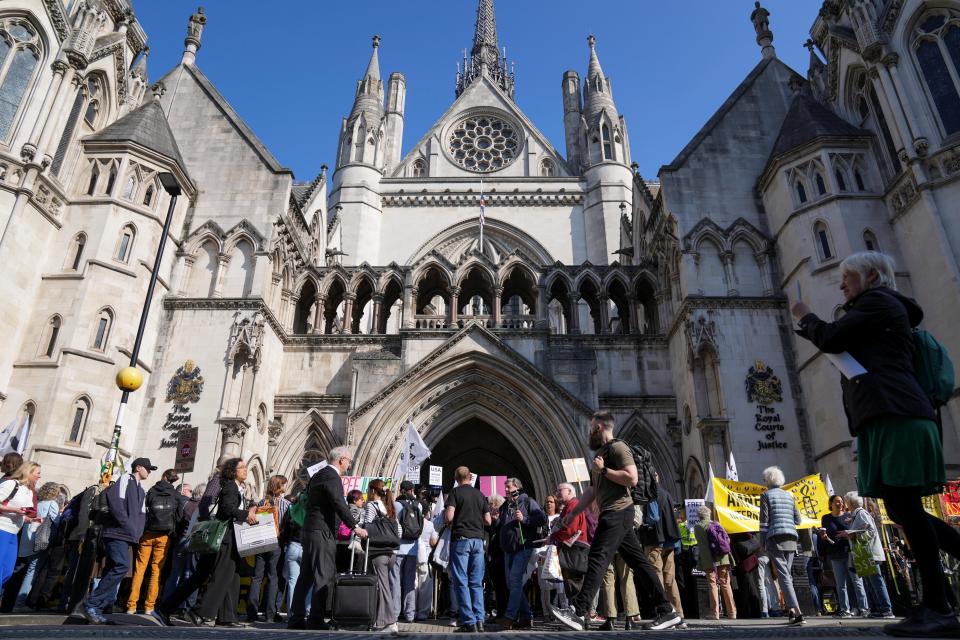WikiLeaks' Julian Assange pleads guilty to violating Espionage Act in plea deal for freedom
WikiLeaks founder Julian Assange admitted violating the Espionage Act by publishing a trove of classified information about the U.S. military in Iraq and Afghanistan Wednesday morning local time in the Northern Mariana Islands. Under a plea agreement, he was freed after serving 62 months in prison.
Assange was imprisoned in the United Kingdom while fighting his extradition to the United States. He had been indicted by the U.S. Justice Department in 2019 on 17 counts of espionage and one count of computer misuse.
The controversial activist-publisher agreed to plead guilty to one count of conspiring to unlawfully obtain and disseminate classified information relating to the national defense of the United States. His plea came in U.S. District Court the Northern Mariana Islands, a U.S. territory in the Pacific Ocean, because of his opposition to visiting the U.S. mainland.
Assange was released after the court proceeding to return to Australia, his country of citizenship. He reportedly arrived at the courthouse accompanied by Australia's ambassador to the U.S. Kevin Rudd.
"I feel elated," said his wife, Stella Assange. "We will be seeking a pardon, obviously, but the fact that there is a guilty plea, under the Espionage Act, in relation to obtaining and disclosing national defense information is obviously a very serious concern for journalists."
Assange's lawyer, Richard Miller, didn't respond to a request for comment about the plea agreement.
Anthony Albanese, prime minister of Australia, said regardless of what people think of Assange, "the case has dragged on for too long."
"There is nothing to be gained by his continued incarceration, and we want him brought home to Australia," Albanese said.

A massive document dump
The 52-year-old Assange gained worldwide attention in 2010 after revealing the biggest security breach of its kind in U.S. military history. WikiLeaks released more than 90,000 documents related to Afghanistan and later published more than 400,000 documents from the war in Iraq. The documents included information about civilian deaths, the hunt for al-Qaeda leader Osama bin Laden and Iran's backing of militants in Iraq.
Former U.S. Army intelligence analyst Chelsea Manning served years in prison for leaking the documents to WikiLeaks. Former President Barack Obama commuted her sentence after she served seven of 35 years.
Assange’s lawyers argued the charges were politically motivated. He fought extradition, initially taking refuge in Ecuadorian Embassy in London to avoid charges in Sweden, which have since been dropped, because he feared Sweden would extradite him to the U.S.
Assange had been jailed for years in Belmarsh Prison, first for jumping bail on the Swedish charge and later because he was considered a flight risk during his extradition fight.
This article originally appeared on USA TODAY: WikiLeaks' Julian Assange admits violating Espionage Act, freed


